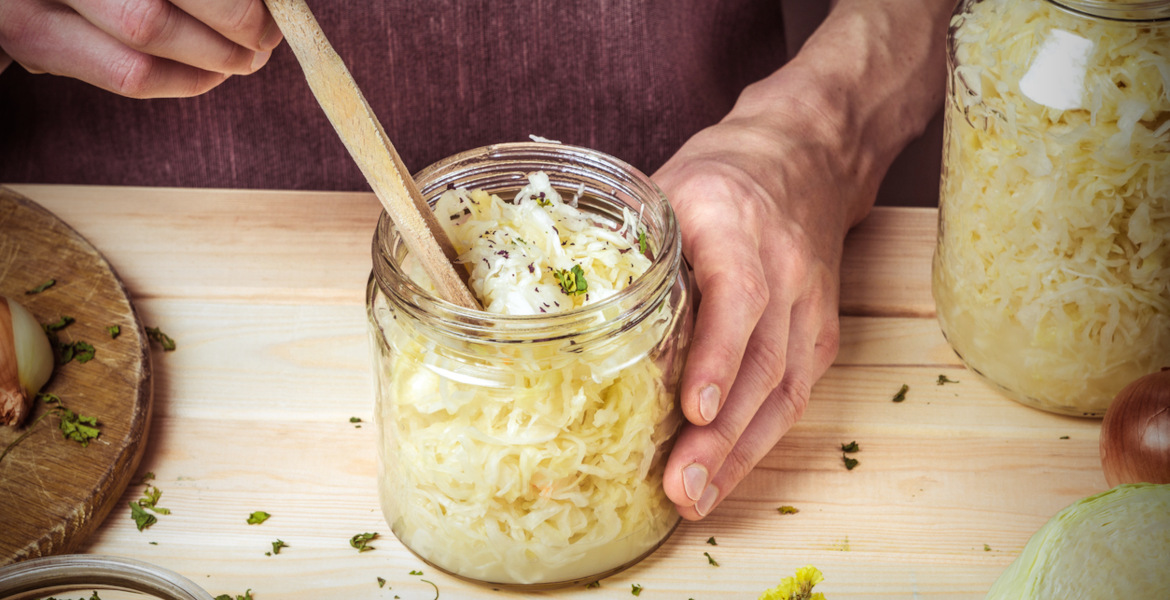Sauerkraut may protect the intestinal lining from inflammation, according to an American study. During fermentation, the nutritional content of cabbage changes – including an increase in levels of lactic acid, amino acids, and other beneficial substances that are formed during the breakdown and can promote gut health.
Fermentation is a natural process where microorganisms like lactic acid bacteria and yeast break down sugars in food. This often results in the conversion of sugar into lactic acid or alcohol. The process not only helps preserve the food – it also produces probiotics, meaning live bacteria that are beneficial for the gut.
Fermented foods have been eaten for thousands of years around the world. For example, eating fermented vegetables makes the nutrients in the food easier for the body to absorb, and some studies show that vitamin levels can actually increase. There are also studies that suggest fermented foods can have positive effects on health, particularly for digestion and the immune system.
Sauerkraut better than raw cabbage
Researchers at the University of California Davis in the USA tested whether the nutrients in sauerkraut could help protect intestinal cells from inflammation-related damage. The study compared sauerkraut, raw cabbage, and the brine left over after the cabbage fermentation process.
The experiments were conducted on an artificial intestinal wall exposed to inflammation by adding so-called cytokines – which are known to damage the intestinal lining. These can be activated in the gut, for example, by consuming too much ultra-processed food or too much sugar or salt.
Fermentation increases beneficial substances
The results showed that sauerkraut can protect the intestinal lining from inflammation caused by cytokines. Raw cabbage and the brine, however, did not help protect the gut. It didn’t matter whether the sauerkraut was store-bought or homemade.
Chemical analyses show that fermentation changes the nutritional profile of cabbage and increases the amount of beneficial metabolites such as lactic acid, amino acids, and plant compounds, which in turn are linked to gut health. These changes may explain why fermented foods are often associated with digestive benefits.
– Some of the metabolites we find in the sauerkraut are the same kind of metabolites we're finding to be made by the gut microbiome, so that gives us a little more confidence that this connection we found between the metabolites in sauerkraut and good gut health makes sense, says Professor Maria Marco in a press release.
The researchers have found hundreds of different metabolites that are formed during fermentation and that they are now working to determine which ones play the biggest role in supporting long-term gut health. The next step in the research is to conduct studies in humans to see if the gut-protective metabolites found in sauerkraut can have the same positive effects when included in the daily diet, as was shown in the lab.
– A little bit of sauerkraut could go a long way, she says. We should be thinking about including these fermented foods in our regular diets and not just as a side on our hot dogs.




